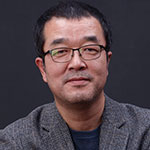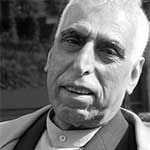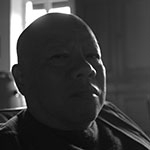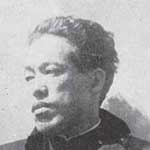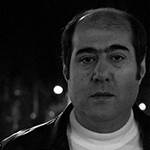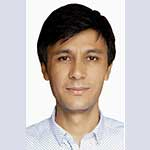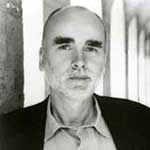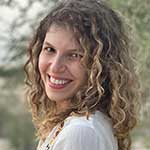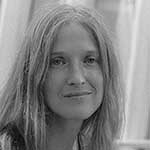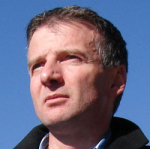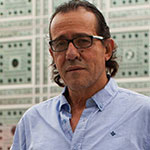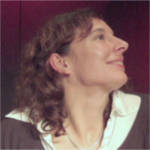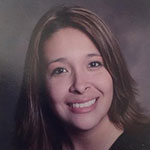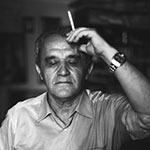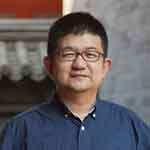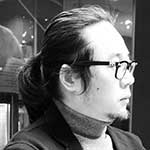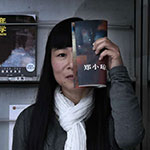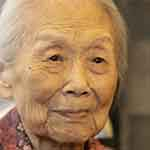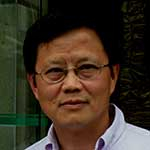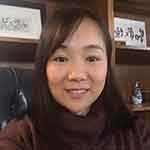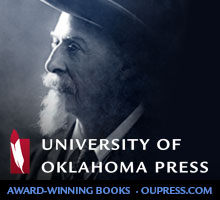Authors
Find your favorite authors featured in WLT or browse the entire list.
Lee Young-Kwang
Lee Young-Kwang is a professor of creative writing and media studies at Korea University. He has published four collections of poetry; in 2011 All the Evening Wishes won the prestigious Mi-Dang literature award. Other awards include the Roe-Jak Prize (2008) and Ji-Hoon Prize for Literature (2011).
Saadi Youssef
Born near Basra, Iraq, Saadi Youssef (1934–2021) was considered one of the most important contemporary poets in the Arab world. Following his experience as a political prisoner in Iraq, he spent most of his life in exile, working as a journalist and activist throughout North Africa and the Middle East. He authored over thirty books of poetry, two novels, and a book of short stories. Youssef lived in London at the time of his death, where he was a leading translator of English literature into Arabic. He translated works by many major writers, including Walt Whitman, Federico García Lorca, C. P. Cavafy, Vasko Popa, and Giuseppe Ungaretti.
King Yu
King Yu is a researcher and freelance translator in China after receiving his PhD in translation studies in the UK. He is now focusing on the translation and reception of contemporary Chinese literature in the English-speaking world.
Yu Jian
One of China’s leading avant-garde poets, Yu Jian (b. 1954) began writing poetry in the 1970s. A versatile and prolific writer, he has published over forty books of poetry, prose, essays, and photography. His controversial 1994 poem, “File Zero,” is considered one of the most innovative and radical works in the history of contemporary Chinese poetry. He lives in Kunming, China.
Yu-Yun Hsieh
Yu-Yun Hsieh is a writer, critic, and translator, currently a PhD candidate in comparative literature at the Graduate Center, CUNY. She is an award-winning novelist from Taiwan and a former fiction fellow of the Writers’ Institute in NYC. Her Chinese translation of Thomas Pynchon’s The Crying of Lot 49 was published in 2014.
Kyūsaku Yumeno
Kyūsaku Yumeno, which translates roughly to “a field where dreams are always growing,” was the pen name of the Japanese writer Taidō Sugiyama (b. 1889). Notorious in Japan for unusual, often downright bizarre detective stories, Yumeno is famous as one of Japan’s first avant-garde writers and as a product of the rapid modernization and westernization of the Taishō era (1912–26). His magnum opus, the experimental mystery Dogura Magura, was adapted for film in the late 1980s. He died suddenly at the age of forty-seven in 1936.
Rasool Yunan
Rasool Yunan is an Iranian poet, novelist, playwright, and short-story writer. Born in Urmia, Iran, in 1969, Yunan rose to fame for his poetry collections, but he has turned toward microfiction in his latest collections: You Were Late So We Ate Dinner, Careful, Don’t Hit Your Head on the Chandelier, and A Cottage in a Snow-Covered Field. His most recent publication is a 2018 best-selling novel entitled The Journey Was Long So We Spoke of Love.
Hamza Yusuf
Hamza Yusuf is president of Zaytuna College. He has been a student of the classical Islamic tradition for over forty years, studying with some of the most respected scholars of our time, and serves as an adviser to the Center for Islamic Studies at the Graduate Theological Union in Berkeley. He is vice president of the Forum for Promoting Peace in Muslim Societies, an international initiative that seeks to address the root causes that can lead to radicalism and militancy. His most recent book is Purification of the Heart: Signs, Symptoms and Cures of the Spiritual Diseases of the Heart (2012).
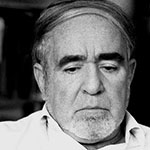
Photo by Moti Kikayon / Wikipediadiv>Natan Zach
Natan Zach was born Harry Seitelbach in 1930 to a German Jewish father and an Italian mother. His ten published books of poetry were collected in The Complete Poems in three volumes (Hakibbutz Hameuchad, 2008), which also included new poems, and many of his influential essays were collected in the volume The Poetry beyond Words: Critical Essays, 1954–1973 (Hakibbutz Hameuchad, 2011).
Musa Zafar
Musa Zafar is a prominent human rights activist and satirist from Afghanistan; forced to live in exile since 2016, he is currently living in the Republic of Fiji. He has been writing satire columns for different Persian newspapers and online magazines since 2013 and has been critical of political, religious, and cultural inadequacies. He is allergic to plastic shopping bags, plastic bottles, and people who think they are following the world’s only true religion.
Adam Zagajewski
Adam Zagajewski (b. 1945) was born in the city of Lwów (now Lvov, Ukrainian SSR), but was forced to leave as an infant when the Red Army occupied the city. After studying philosophy at Jagiellonian University in Kraków, he emigrated to Paris, where he would remain until 2002. He began writing poetry in the 1970s and helped lead the movement that would come to be known as the Polish New Wave. He built his career around teaching at various universities around the world, including the University of Houston and the University of Chicago in the United States.
Sherouk Zakaria
Sherouk Zakaria has been working in media for the last eight years and is passionate about communication and storytelling across different platforms. She worked as a multimedia producer and journalist at Khaleej Times newspaper, and some of the stories she reported made their way to global media outlets including The Guardian, The Independent, and BBC. She was part of the communications team at the UAE Government Media Office, under the Ministry of Cabinet Affairs, where she led the English content of groundbreaking campaigns including the recent “Projects of the 50,” the Emirates Mars Mission, and the UAE Nation Brand. She is currently a journalist for Arab News. She obtained a certification in digital marketing from Ireland’s Digital Marketing Institute and an MA in global media and digital cultures at SOAS University of London.
Sepideh Zamani
Sepideh Zamani (born in northern Iran) graduated from law school in 1999 and moved to the United States a year later. Her novels, short stories, essays, and poetry focus on immigration, gender inequality, and the lives of ethnic and religious minorities under cultural cleansing.
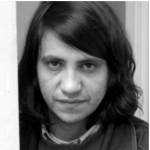
Photo by Omar Faundezdiv>Alejandro Zambra
Alejandro Zambra (born 1975) is a poet, fiction writer, and literary critic born in Santiago, Chile. He studied at the Instituto Nacional and the University of Chile. He currently teaches at the School of Literature at the Diego Portales University in Santiago. He has contributed articles on literature in newspapers The Latest News, The Clinic, El Mercurio and La Tercera, and magazines such as Turia and Letras Libres.
Tatsiana Zamirovskaya
Tatsiana Zamirovskaya is a writer from Minsk, Belarus, who moved to Brooklyn in 2015. The author of three short-story collections, her recent book of metaphysical sci-fi stories, The Land of Random Numbers (2019), was longlisted for the Russian National Bestseller Award and NOS Literary Award. Her first novel, The Deadnet, will be published in 2021 by AST/Elena Shubina Imprint.
Daisy Zamora
Daisy Zamora’s poetry collections in Spanish have been published in Nicaragua, Costa Rica, and Spain. Most recently, her selected poems were published in Madrid: La violenta espuma (Visor, 2017). Bilingual collections of her work have been published in England and the US, including The Violent Foam, translated by George Evans.
Alessio Zanelli
Alessio Zanelli,Italian by birth, has long adopted English as his writing language and has appeared in literary magazines in a dozen countries, including, in the USA, Ascent, California Quarterly, Chiron Review, Concho River Review, Iconoclast, Italian Americana,The Lyric, Main Street Rag, Poesia, and Potomac Review. His fourth full collection, titled Over Misty Plains, will be released in the UK by Indigo Dreams in late 2011/early 2012. He is the poetry editor of Private Photo Review, an international magazine of photography and short writings, the Italian Stanza Representative for the Poetry Society of London, and a featured poet in the 2006 edition of Poet’s Market.
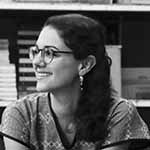
Photo by Jorge Luis Platadiv>Isabel Zapata
Isabel Zapata is a Mexico City–born writer and editor. She is the author of the poetry books Ventanas adentro (Ediciones Urdimbre, 2002), Las noches son así (Broken English, 2018), and Una ballena es un país (Almadía, 2019) as well as the bilingual essay collection Alberca vacía / Empty Pool (Argonáutica, 2019, trans. Robin Myers). Recent poems have appeared in English translation in Waxwing, The Common, Rio Grande Review, and are forthcoming in Words Without Borders.
Ghassan Zaqtan
Palestinian poet Ghassan Zaqtan is a novelist, editor, and the author of ten collections of poetry. His newest collection, The Silence That Remains, is forthcoming from Copper Canyon. He is a two-time finalist for the Neustadt International Prize for Literature (2014, 2016) and shared the 2013 Griffin Poetry Prize with Fady Joudah. He lives in Ramallah.
Robert Zaretsky
Robert Zaretsky is the author of several books and a Professor of French History at University of Houston.
Juli Zeh
Juli Zeh (born on 30 June 1974 in Bonn) is a German writer. Her first book was Adler und Engel (translated into English as Eagles and Angels by Christine Slenczka), which won the 2002 Deutscher Bücherpreis for best debut novel. She traveled through Bosnia-Herzegovina in 2001, which became the basis for the book Die Stille ist ein Geräusch. Her other books are Das Land der Menschen, Schilf (translated into English as Dark Matter by Christine Lo), Alles auf dem Rasen, Kleines Konversationslexikon für Haushunde, Spieltrieb, Ein Hund läuft durch die Republik and Corpus Delicti (translated into English as The Method by Sally-Ann Spencer).
Skuya Zephier
Skuya Zephier, a member of the Oglala Sioux Tribe, was born and raised a nomad in the West and educated as a petroleum geologist. Her essay “Landmarks and Mines” appeared in conjunction with the “After Alcatraz” issue of WLT (Autumn 2019). She is currently writing and telling her family’s stories before they are lost in the wind, to time.
Moikom Zeqo
Born in Durrës, Albania, in 1949, Moikom Zeqo is a prolific author of poetry, fiction, children’s books, and monographs on history and literature. He has published more than one hundred books in his lifetime. In 1974 his third poetry collection, Meduza (published in the US as I Don’t Believe in Ghosts [BOA, 2007]), was suppressed until after the fall of Albanian communism. In 1979 Zeqo was “rehabilitated” and employed by the Archaeological Museum of Durrës and the Academy of Sciences in Tirana. In 1991 he served as Albania’s minister of culture. From 1992 to 1996 he served as a parliamentary representative in the Albanian Popular Assembly, and from 1998 to 2004 he directed the National Historical Museum in Tirana. Since then, he has worked as a journalist, art curator, and freelance writer. The US translation of his book Zodiac (Zephyr, 2015) was a finalist for the PEN Center USA Award in Translation.
Gabrielle Zevin
Gabrielle Zevin (b. 1977) is an American author and screenwriter.
Zhang Huiyu
Zhang Huiyu is an assistant professor of journalism and mass communication at Peking University. His research specializes in film and media studies, mass communication, and the social history of journalism. His publications include Visual Modernity: Representing the Historical Subject of Twentieth-Century China and The Phantom Subject: Studies of Chinese Popular Culture.
Zhang Er
Zhang Er, a Shenzhen-based Chinese poet, is the author of three poetry collections. His work has been translated into English, French, Spanish, Hindi, Swedish, and Japanese. He is editor in chief of Enclave, a poetry journal he founded in 2012. He was an invited poet at poetry events in Stockholm, Gotland, and Uppsala in 2013, and at the 37th annual French/English Poetry Festival in Paris in 2014. He was awarded a Vermont Studio Center / Henry Luce Foundation Chinese Poetry & Translation Fellowship in 2018.
Zheng Xiaoqiong
Zheng Xiaoqiong has been a migrant worker in Guangdong Province since 2001. Her poetry and prose have appeared in Shikan, Shanhua, and Renmin Wenxue, among many others. She has won multiple literary awards and attended poetry festivals all over the world. Her poems have been translated into a dozen other languages.
Zheng Min
Zheng Min (1920–2022) was one of the most important poets from China. She taught poetry at Beijing Normal University from 1960 till retirement in 2006. Her Collected Poems appeared in 2016. Also an accomplished translator and critic, she published Contemporary American Poetry (1987) and four books of critical essays on Western philosophy and comparative poetics.
John Zheng
John Zheng is the author of A Way of Looking and the editor of Conversations with Dana Gioia and Conversations with Sterling Plumpp. He has published interviews in African American Review, Arkansas Review, Mississippi Quarterly, and a few other journals. He has received two artist fellowships from Mississippi Arts Commission.
Ping Zhu
Ping Zhu is associate professor of Chinese literature at the University of Oklahoma and the acting editor in chief of the biennial literary journal Chinese Literature Today. She is the author of Gender and Subjectivities in Early Twentieth-Century Chinese Literature and Culture. She has co-edited Maoist Laughter and Feminisms with Chinese Characteristics.
Pagination
